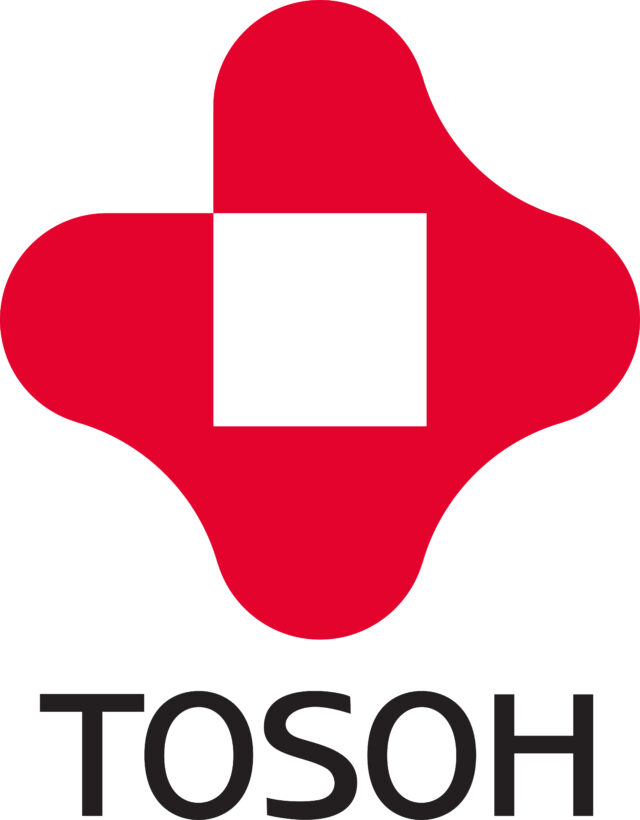Home
We are excited to announce the recipients of the 2025 Akira Suzuki Awards. Congratulations to the 2025 Akira Suzuki Award winner Professor Jin–Quan Yu of The Scripps Research Institute and the 2025 ICReDD Award winner Professor Emily A. Carter of Princeton University. For more details on this year’s award recipients, please refer to the “Recipients” tab.
The 5th Annual Akira Suzuki Awards Ceremony is scheduled to take place on October 16, 2025 in conjunction with the 9th ICReDD International Symposium. Further details about the ceremony and participant registration will be announced via the symposium website.
The Akira Suzuki Awards were established in 2021 by the Akira Suzuki Award Organization Committee in commemoration of Professor Akira Suzuki being awarded the 2010 Nobel Prize in Chemistry, and to celebrate his 90th birthday. The purpose of the award is to recognize outstanding contributions to research in the discovery of chemical reactions, defined in the broadest sense, and to contribute to the advancement of science and technology.
The two awards, the Akira Suzuki Award and the ICReDD Award, will be bestowed upon a researcher who has achieved remarkable results in the development of chemical reactions in the field of experimental chemistry (Akira Suzuki Award) or the fields of computational (theoretical) chemistry and information science (ICReDD Award). Each award is given to one person each year, regardless of age or nationality.
There will be an award ceremony and an award lecture every year. The winners receive a medal and a monetary prize.
About
Professor Akira Suzuki was born in Hokkaido, Japan, on September 12, 1930.
After graduating from the Department of Chemistry, Faculty of Science at Hokkaido University in 1954, he completed a master’s degree at the Graduate School of Science, Hokkaido University in 1956 and completed his PhD there in 1960.
In 1961, he became an assistant professor at the Department of Synthetic Chemistry, Faculty of Engineering at Hokkaido University. From 1973, he served as a professor at the Department of Applied Chemistry for about 20 years, retiring in 1994 to become a professor emeritus at Hokkaido University.
After his retirement, he served as a professor at Okayama University of Science in 1994 and at Kurashiki University of Science and the Arts from 1995 to 2002.
During this period, he was an invited professor at Purdue University in the U.S. in 2001, and later became an invited professor and professor emeritus at various universities in Japan and abroad, including Hokkaido University.
In 2015, he was awarded the title of University Professor of Hokkaido University, which is given to researchers who have made globally outstanding educational and research achievements and who are recognized as contributing to the advancement of education and research at Hokkaido University over the long term.
For two years from 1963, he worked as a postdoctoral fellow in H. C. Brown’s laboratory at Purdue University in the U.S., where he was engaged in research on the synthesis and utilization of organoboron compounds. After returning to Japan, he further developed this field and made many outstanding achievements. In particular, the palladium-catalyzed cross-coupling reaction of organoboron compounds reported in 1979 has had a great impact not only on synthetic organic chemistry but also on a wide range of fields such as catalytic chemistry and materials science. The Suzuki coupling reaction, which was the reason he was awarded the 2010 Nobel Prize in Chemistry, has made a significant contribution to the development and mass production of products that are familiar to us, such as pharmaceuticals, pesticides, liquid crystals essential for IT equipment, and organic light-emitting diodes.
Recipients
2025 Akira Suzuki Award Winners Akira Suzuki Award:
Jin–Quan Yu (The Scripps Research Institute)
Jin-Quan Yu was born and raised in a rather isolated mountain valley in Zhejiang Province (Southwest of Shanghai). He received his B.S. in Chemistry at East China Normal University, where he worked with Professor Li-Xin Dai and Professor Bi-Qi Wu as a visiting student at Shanghai Institute of Organic Chemistry, Chinese Academy of Sciences in 1987. Following a one-year course study in Shanghai Institute of Organic Chemistry, he went to Guangzhou Institute of Chemistry, Chinese Academy of Sciences to study terpene chemistry and heterogeneous catalysis under the supervision of Professor Shu-De Xiao and obtained his master’s degree in 1990. He stayed on as a research associate for four years and went to Cambridge University for his doctoral studies under the supervision of Prof. J. B. Spencer, where he studied biosynthesis and the mechanistic details of the hydrometallation step in asymmetric hydrogenation.
He was elected as a Junior Research Fellow of St John’s College, Cambridge University in 1998. From 2001-2002, Jin-Quan worked on Pd-catalyzed allylic oxidation as a postdoctoral fellow at the Harvard University in the laboratories of Professor E. J. Corey. He returned to Cambridge University in 2002 and was appointed as a University Royal Society Research Fellow in 2003 to start his independent research towards developing asymmetric C–H metalation reactions. In 2004, he moved to Brandeis University as an Assistant Professor of Chemistry. He joined The Scripps Research Institute as an Associate Professor in 2007 and became a full Professor in August 2010. He was appointed as the Frank and Bertha Hupp Professor of Chemistry at The Scripps Research Institute in 2012.
He received the Mukaiyama Award in 2012, the Raymond and Beverly Sackler Prize in the Physical Sciences in 2013, the Elias J. Corey Award in 2014, the MacArthur Fellowship in 2016, the Pedler Award in 2017, Gabor A. Somorjai Award in 2022, Tishler Prize from Harvard in 2023, Yamada-Koga Prize, Tokyo University in 2024, Chemical Pioneer Award – American Institute of Chemists in 2024, and Award for Creativity in Molecular Design and Synthesis of ACS North Jersey Section in 2024.
ICReDD Award:
Emily A. Carter (Princeton University)
Emily A. Carter is a renowned scholar and educator (Princeton University’s Inaugural Andlinger Professor in Energy and the Environment) and visionary administrative leader (Princeton’s Andlinger Center for Energy and Environment Founding Director, Princeton’s Dean of Engineering and Applied Science, UCLA’s Executive Vice Chancellor and Provost, now Princeton Plasma Physics Laboratory’s Senior Strategic Advisor and Associate Laboratory Director for Applied Materials and Sustainability Sciences) with a research career spanning chemistry, materials science, mechanical and aerospace engineering, and applied/computational mathematics/physics. She pioneered development and application of quantum simulation techniques enabling design of materials and processes for sustainable energy and carbon mitigation. She has co-authored over 475 publications, patents, and codes; mentored nearly 100 postdoctoral fellows and Ph.D. students; and delivered over 600 invited, keynote, and plenary lectures worldwide. Her many honors include election to the U.S. National Academy of Sciences, American Academy of Arts and Sciences, U.S. National Academy of Inventors, U.S. National Academy of Engineering, European Academy of Sciences, and as Foreign Member of Great Britain’s Royal Society. She strategically lends her expertise to various entities, from the U.S. National Academies (recently chairing a three-year Congressionally mandated study on carbon utilization) to private science foundations (launching an initiative for the Simons Foundation on solar radiation management science and serving on the Kavli Foundation’s board of directors) to the federal government (member of multiple national lab advisory and review boards) to advising companies (e.g., chairing a new scientific advisory board for a direct ocean capture company).
Past Recipients
Akira Suzuki Award:
2024 — Gregory C. Fu (California Institute of Technology)
2023 — Erick M. Carreira (ETH Zürich)
2022 — John F. Hartwig (University of California-Berkeley)
2021 — Stephen L. Buchwald (Massachusetts Institute of Technology)
ICReDD Award:
2024 — Alán Aspuru-Guzik (University of Toronto)
2023 — Frank Neese (Max Planck Institute for Coal Research)
2022 — Kendall N. Houk (University of California-Los Angeles)
2021 — David J. Wales (University of Cambridge)
Organization
The selection of the winners is based on recommendations from the respective Selection Committees, which are composed of domestic and international experts commissioned by the chairman of the Award Organizing Committee. These recommendations are reviewed by the Award Organizing Committee and a final selection is made.
Award Organizing Committee:
Chairman Masaya Sawamura (Professor, Hokkaido University)
Vice Chairman Tetsuya Taketsugu (Professor, Hokkaido University)
Hajime Ito (Professor, Hokkaido University)
Yoshihiro Sato (Professor, Hokkaido University)
Satoshi Maeda (Professor, Hokkaido University)
Tamiki Komatsuzaki (Professor, Hokkaido University)
Akira Suzuki Award Selection Committee:
Timothy F. Jamison (Professor, Massachusetts Institute of Technology)
Bernhard Breit (Professor, University of Freiburg)
Benjamin List (Professor, Max Planck Institute and Specially Appointed Professor, ICReDD)
Masaya Sawamura (Professor, Hokkaido University)
Hajime Ito (Professor, Hokkaido University)
Yoshihiro Sato (Professor, Hokkaido University)
ICReDD Award Selection Committee:
Michael Rubinstein (Professor, Duke University and Principal Investigator, ICReDD)
Alexandre Varnek (Professor, University of Strasbourg and Principal Investigator, ICReDD)
Hirofumi Sato (Professor, Kyoto University)
Tetsuya Taketsugu (Professor, Hokkaido University)
Satoshi Maeda (Professor, Hokkaido University)
Tamiki Komatsuzaki (Professor, Hokkaido University)
Junya Hasegawa (Professor, Hokkaido University)
Contact
Please direct any inquiries regarding the Akira Suzuki Awards to:
event[at]icredd.hokudai.ac.jp
The Akira Suzuki Awards are funded by the generous sponsorship of the Tosoh Corporation.



